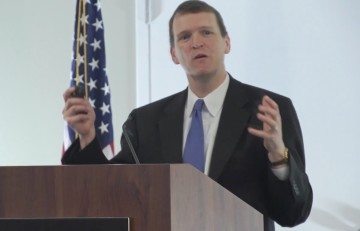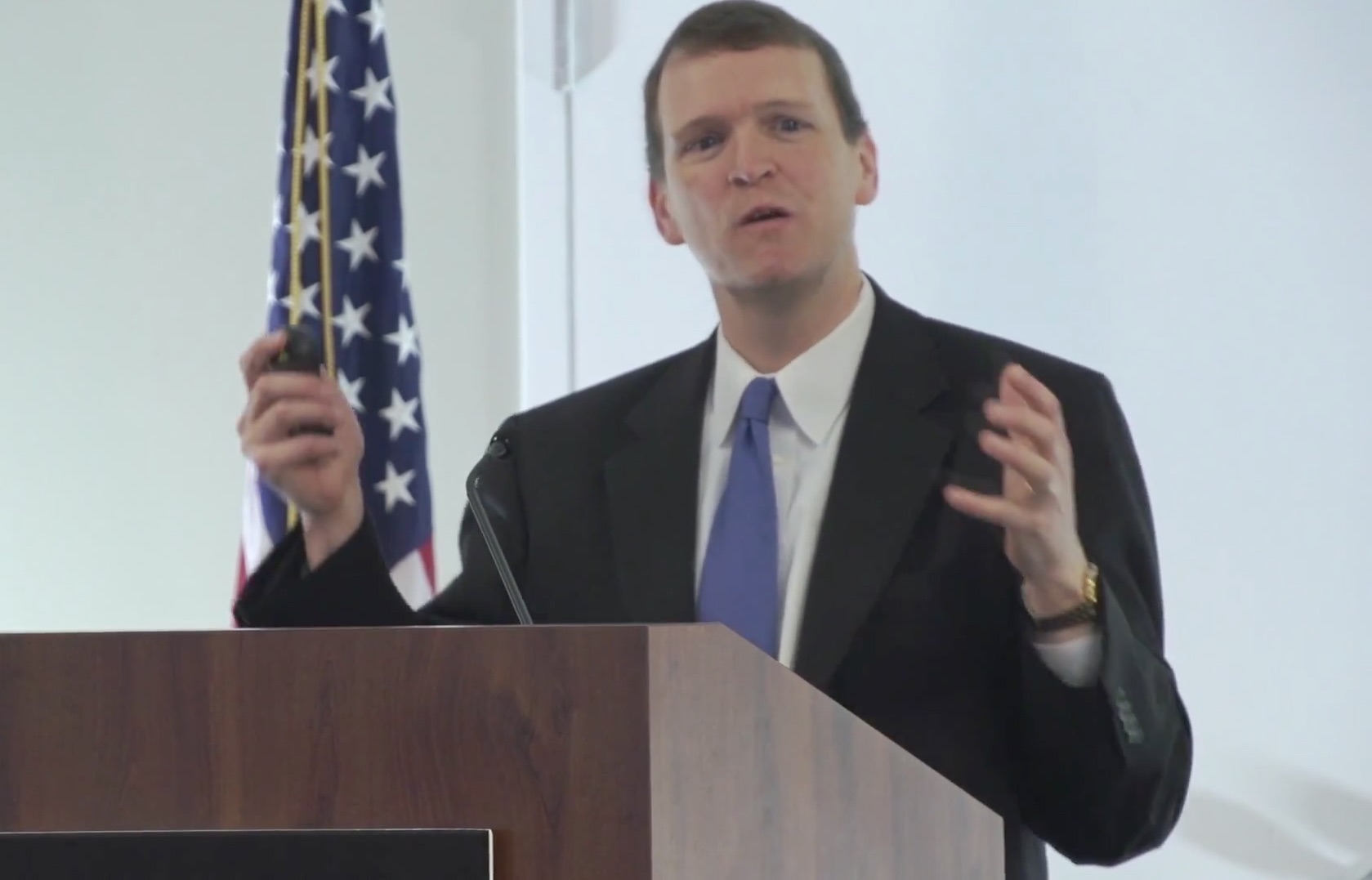
In Texas Transgender Suit, Who’s Facing Harm?
States play victim in federal court, but LGBT advocates say trans kids are the ones truly at risk.


Friday’s hearing in Texas’ lawsuit challenging the Obama administration’s recent guidance on how schools should accommodate transgender students focused heavily on questions related to “harm.”
Are Texas and 12 other co-plaintiff states being harmed by the guidance, a requirement for the states to have standing to bring their legal challenge, even though the administration says it isn’t binding?
If so, is that harm “irreparable”? That’s the threshold the states must meet for U.S. District Judge Reed O’Connor to grant a preliminary injunction blocking the guidance.
But after more than two hours of arguments inside a federal courtroom in Fort Worth, LGBT advocates lamented that amid all the legalese, the hearing failed to address what they perceive to be the real harm in the case. They said trans students in Texas and across the nation are being harmed on a daily basis by schools that don’t follow the federal guidance, which says schools should allow students to use restrooms and locker rooms according to their gender identity.
“Their voices were completely absent” during the hearing, said Shannon Minter, an East Texas native who serves as legal director for the National Center for Lesbian Rights. “There was no focus on their safety or interest, and to me, that’s appalling.”
Hoping to put a face to the legal complexities, Amber Briggle of Denton arrived shortly before the hearing with her 8-year-old transgender son M.G., addressing reporters in a hallway outside the courtroom. Briggle explained that in first grade, M.G. would “hold it in” during school to avoid using the girls’ restroom, resulting in poor grades and disciplinary problems. But then MG’s parents worked out an agreement with the school that accommodates him.
“Within three weeks, his reading level jumped three grades,” Briggle said.
After the hearing, Mark Phariss, an attorney and a plaintiff in the federal lawsuit that overturned Texas’ same-sex marriage ban last year, rattled off statistics as he stood in front of news cameras outside the courthouse. Phariss pointed to a recent study showing 33 percent of LGBT students are bullied, 40 percent have contemplated suicide, and 29 percent had attempted it in the previous 18 months. He accused Attorney General Ken Paxton of wasting taxpayer money to bring his lawsuit challenging the guidance “for the purpose of politics.”
“It’s a shame and a disgust,” Phariss said.
Austin Nimocks, the AG’s associate deputy for special litigation — who previously worked for the anti-LGBT Alliance Defending Freedom — argued during the hearing that the administration is holding “a gun to the head” of the plaintiffs by threatening to withhold federal education funds if they don’t follow the guidance. Nimocks also claimed the Obama administration is “usurping the authority” of the states by forcing them to “mix the sexes in intimate areas” with no regard for the “privacy, dignity and safety” of others, creating a “hostile environment” in workplaces and schools.
For the last several years, the Obama administration has taken the position that both Title VII and Title IX — federal laws prohibiting discrimination based on sex in employment and education, respectively — also cover gender identity. But Nimocks argued that wasn’t the intent of Congress when the laws were passed.
Benjamin Berwick, an attorney from the U.S. Department of Justice, countered that federal regulations frequently go beyond the text of the statutes on which they are based. But the guidance on trans students isn’t even a regulation, Berwick said. Rather, it’s merely intended to advise stakeholders about the administration’s interpretation of the law, which is based partly on rulings from federal courts in other circuits. The states aren’t facing imminent harm, Berwick added, because no enforcement action has been brought against them. That, he said, would be the appropriate time for states to seek judicial review.
Minter, a prominent figure in national LGBT circles, said after the hearing it would be “completely unprecedented and extraordinary for a federal judge to tell federal agencies that they cannot advance their own view of the law in future cases.”
Nevertheless, Minter acknowledged that during the hearing, O’Connor seemed inclined to grant an injunction.
O’Connor, who has a record of ruling against LGBT rights, quizzed Nimocks briefly on a few of the state’s points, but spent far more time grilling Berwick, only to rebut many of his responses. Near the close of the proceeding, O’Connor asked Nimocks how soon the AG’s office needs a decision on its request for an injunction, given that the start of the school year is approaching.
“We can’t have one soon enough,” said Nimocks, adding that school has already begun in some of the states, and generally begins in Texas on August 22.
“Rest assured, I’m working on it,” O’Connor responded.

Outside the courthouse, spokesman Marc Rylander said the AG’s office was “encouraged” by the hearing and is expecting a “very favorable” ruling. Paxton didn’t attend due to a reported scheduling conflict, but was represented in the gallery by First Assistant Attorney General Jeff Mateer, who recently came to the AG’s office from the anti-LGBT legal group First Liberty.
Even before the hearing, some LGBT advocates suggested the real question isn’t whether O’Connor grants an injunction, but how broad its scope will be. It could apply solely to tiny Harrold ISD, the lead plaintiff in the case, across Texas, throughout the 5th Circuit (which also includes Louisiana and Mississippi), or nationwide.
But LGBT advocates have also questioned whether such an injunction would have much practical impact. For one, the federal government would be likely to immediately appeal an unfavorable ruling. And moreover, since the lawsuit doesn’t involve a specific dispute over restroom access, it’s unclear what O’Connor would be enjoining the administration against — other than expressing its opinion.
Lambda Legal senior counsel Ken Upton, who attended the hearing, said the real harm of Texas’ lawsuit — as well as any possible injunction — is that it “gives cover to school districts that want to do the wrong thing and say their hands are tied.”
But Upton said regardless of any subsequent chest-thumping by Paxton and other Texas GOP lawmakers, the injunction wouldn’t prohibit districts from adhering to the administration’s guidance.
“The injunction is not against a school; it’s against the federal government,” Upton said. “Just because the federal government isn’t breathing down your neck, doesn’t mean you have to do the wrong thing.”


